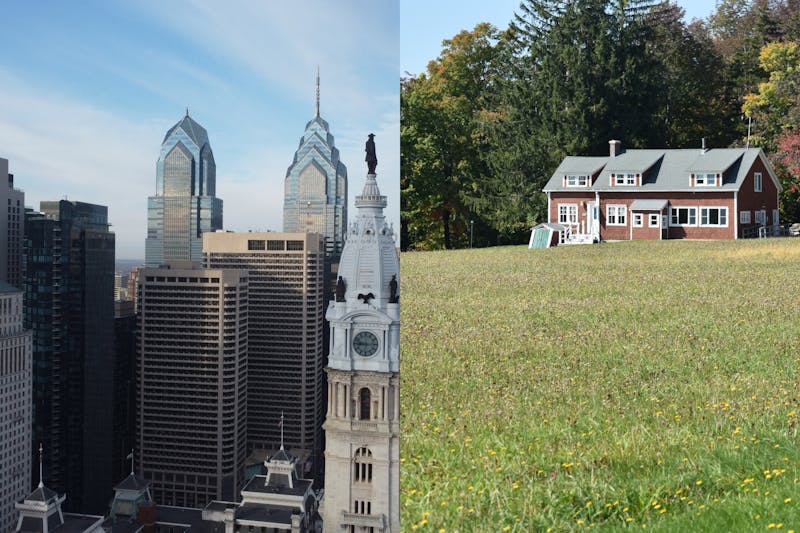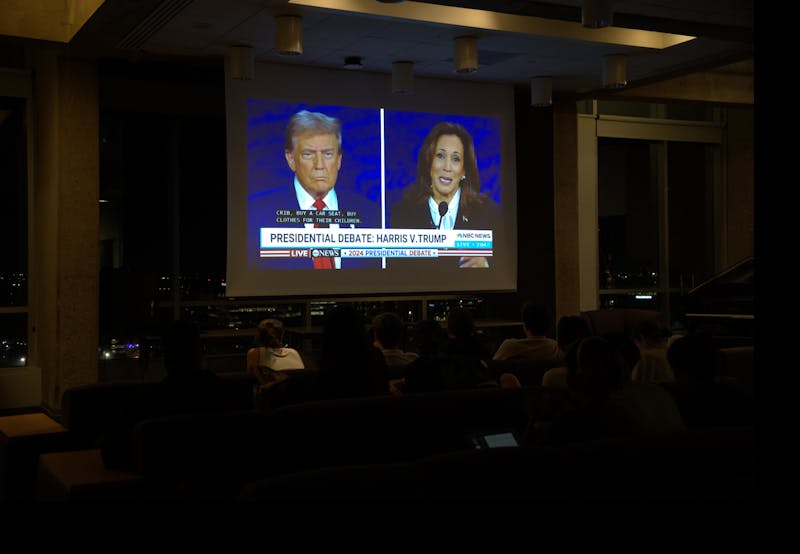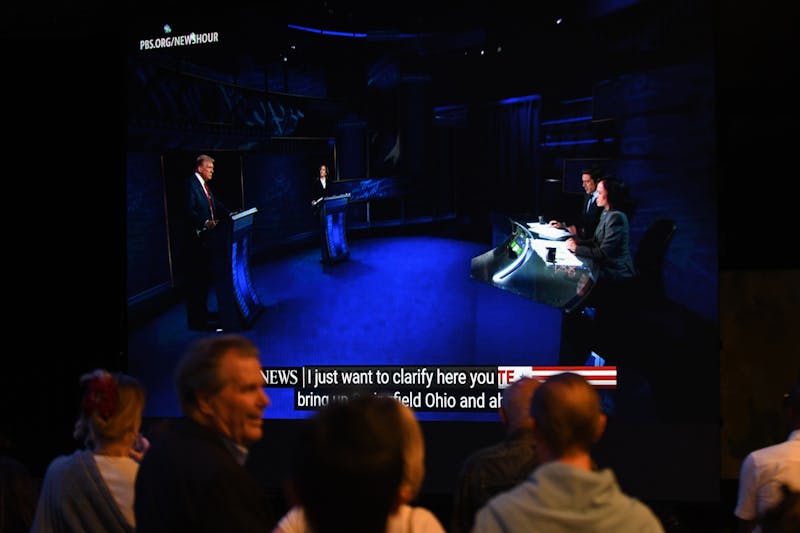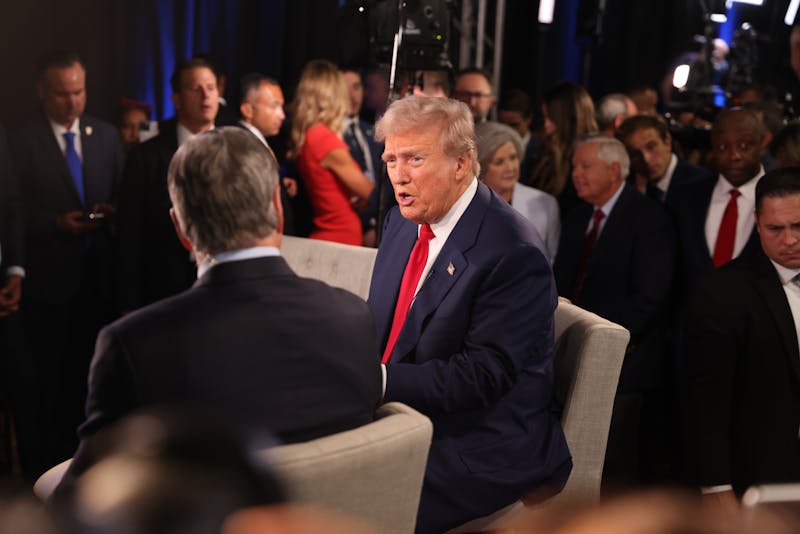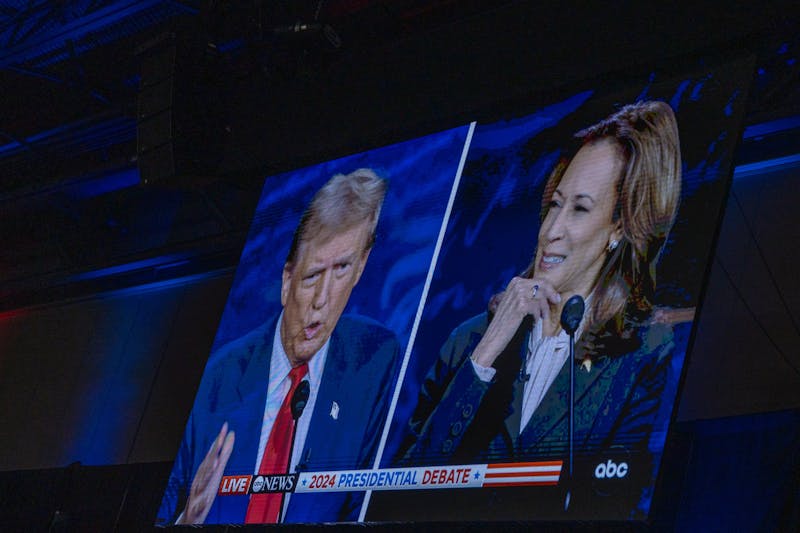
Philadelphia City Councilmember Nicolas O'Rourke speaks at a rally against the construction of an arena in Chinatown on Sept. 7.
Credit: Carly ZhaoWhether you’ve been hitting doors canvassing or nervously refreshing live polls at home, the past few months have been a complete frenzy for many Americans. Despite crippling anxiety, high tensions, and the very legitimate fear for democracy’s future during the past few elections, the months before national elections often feel hopeful to me. Don’t get me wrong — this isn’t because of blind optimism or contentment with the current state of politics (most certainly not after this election). Rather, I’ve found something hopeful about experiencing a time during which the general population takes it upon itself to be more engaged and aware.
With the hope of the months leading up to an election also comes a disheartening concern about how limited our interest in politics seems at times. Why are our civic duties only emphatically assumed during federal elections? Year round, politics colors our lives especially on the municipal, local, and state level. We ought to make a sustained effort to be consistently engaged in these politics as much as we are in their national counterparts.
The literacy gap between national and local politics exists for a plethora of reasons. Most importantly, on the structural level the way mainstream journalism and major media coverage operate today are not conducive to informing local and state political knowledge. The decline of local journalism has been well documented. From underfunding affecting circulation numbers to closures altogether shutting papers down, local news is simply not accessible in the same way it once was.
Even when local newspapers and broadcast stations do exist, they struggle greatly due to decreased viewership and may fall to major corporate acquisitions. In an effort to increase viewership and profit, major conglomerates have redirected locally focused stations to center national politics, creating a vicious supply-demand loop that ultimately leads even politically interested, curious citizens to learn significantly less about their city and state government than national systems.
The world is full of passionate people who hold strong convictions — political discourse this election season has reminded us of that. I don’t believe we undervalue local politics because we are inherently ignorant or dismissive. It is these structural factors that make it more difficult to stay attuned to non-national politics.
After all, of course it’s easier to care during a presidential election! It’s one of the few times information is so clearly condensed and articulated for everyone. National elections are better funded and advertised. Furthermore, presidential races are far more sensationalized. But in recognizing these structural inhibiting factors, we cannot sit idly by. We ought to be even more deliberate and intentional in our efforts to care about our immediate cities, districts, and even states. Resources are available, especially to us as Penn students, as long as we try to find them.
Obviously national politics are incredibly important — the rhetoric behind “all politics is local” emphasizes the importance of constituent connections and localized knowledge; it isn’t meant to negate the importance of national movements, issues, or elections. In fact, the two work hand-in-hand. Today’s local politics will become tomorrow’s national politics. Although the power of individual states in the American system has always been crucial in turning national tides, we mustn't forget the especially precarious implications of state and national relationships in the context of the post-Roe era.
Not only are individual states wielding more power over their own constituents, but trends in state legislatures are also defining social and political conversations across the nation, a notorious example being the massive increase in anti-transgender legislation. Whether fair or not, we are often recognized by politicians as more significant stakeholders in our locales than we are in the nation as a whole. It can be incredibly more efficacious to reach out to local and state representatives than national counterparts. In the nation, we are one of roughly 335 million, but in our cities, we are much more visible. In strategically advocating for the future we want, we must capitalize on that.
Even if reverberations of local and state issues were not felt on the national level, caring about our local communities simply for the sake of caring about them is more than enough to be a worthy reason alone. It might feel less flashy to go to City Hall and protest new developments than it is to intern for a national campaign, but immense value lies in the connection, community, and efficacy brought by participating in local politics.
When we hear “politics,” we must think of the blighted townhouses and segregated neighborhoods in our own communities in addition to the White House and the Capitol. Politics is a sustained, long-term labor of love. There has never been a time in history — especially not now — when we can afford to care about politics solely on the national level for a few months every four years.
It’s time to continue the political awareness and civic engagement we’ve seen in the past few months and translate it beyond just the national sphere for a few months. If recent events have taught us anything, it is that nothing can be taken for granted. We must care about the things that seem small, because they never are.
ARSHIYA PANT is a College sophomore studying history and legal studies from Kansas City, Kan. Her email is arshiyap@sas.upenn.edu.
The Daily Pennsylvanian is an independent, student-run newspaper. Please consider making a donation to support the coverage that shapes the University. Your generosity ensures a future of strong journalism at Penn.
Donate







